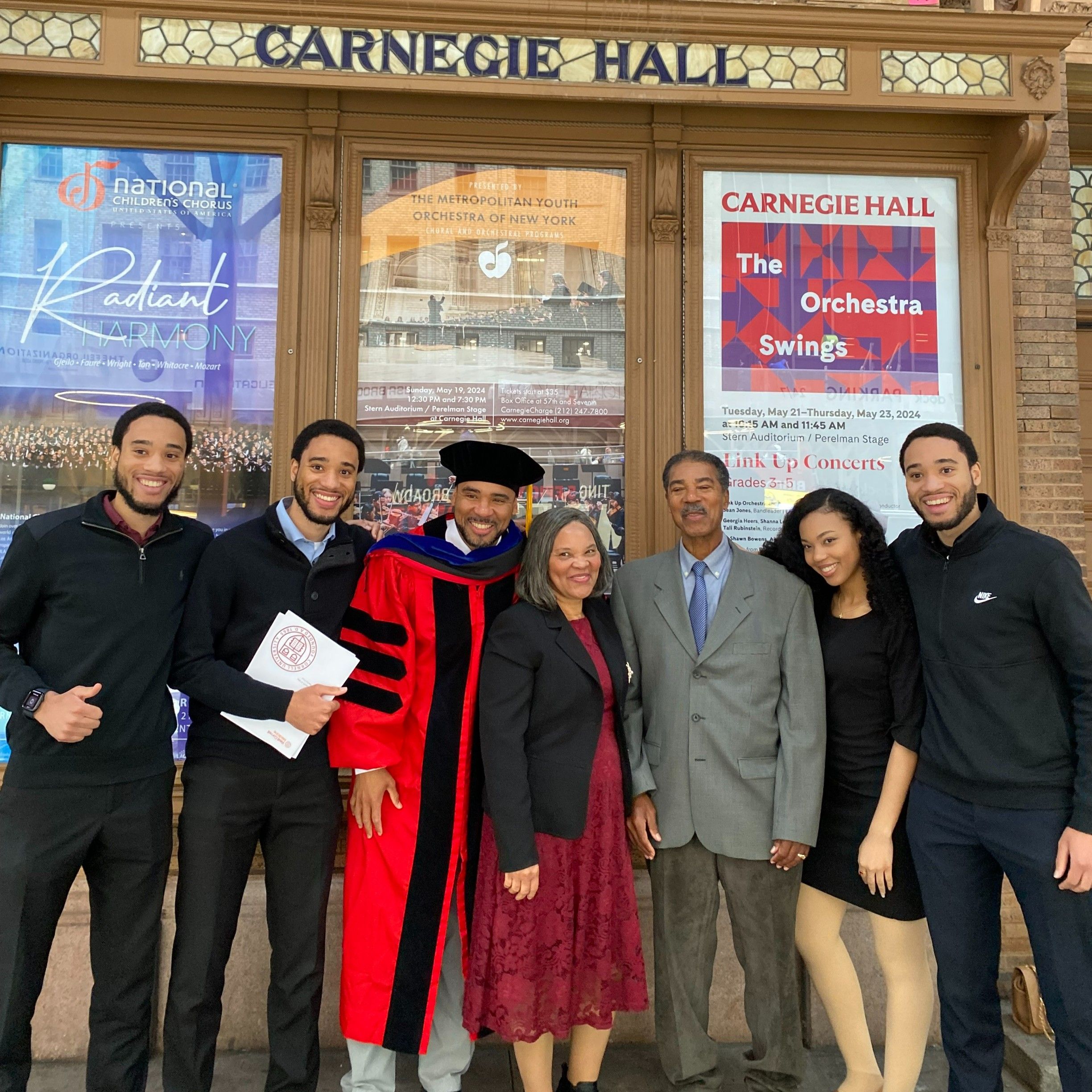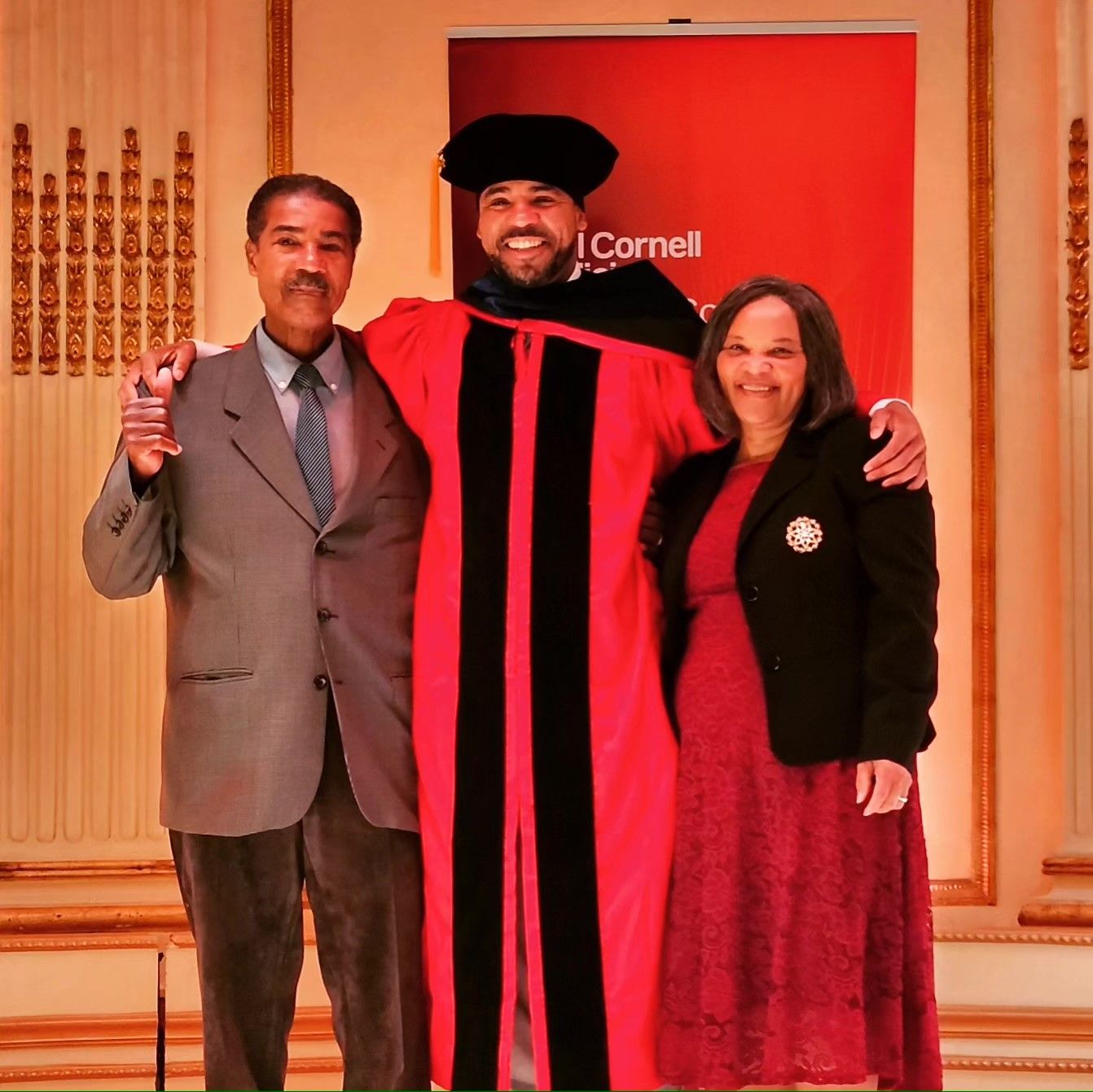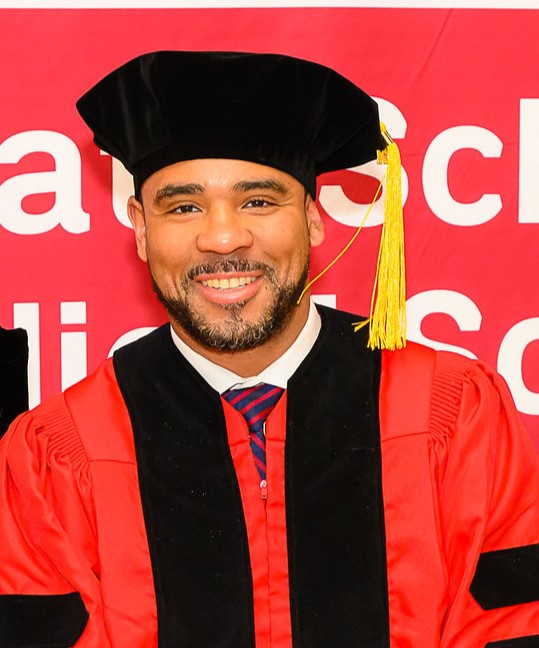Dr. Rudy Gregory Jacquet shares his journey to earn a neuroscience doctorate, a pursuit that began in Haiti with the support of his loving parents – and a dream for a better life.
He walked the stage of Carnegie Hall last week, sharing this special moment with his family and friends.
His journey in his own words:
My parents were born and raised in Morrisseau, a village in southwest Haiti. Like their parents, they became farmers and grew up without access to electricity or modern technologies. Unfortunately, the village still lacks basic amenities such as electricity or paved roads. When my mother was a child in the late 60s, her family didn't own a clock and relied on the moon and the sun to tell time. In addition, Haiti has always been in turmoil, particularly in Port-au-Prince.
My parents had to work on the farm until late, so the local school wasn't a priority. They had to complete their schoolwork by candlelight. As a result, my father only completed the equivalent of second grade in the U.S., and my mother up to the eighth grade.
Our journey to establish ourselves as a family in the U.S. was long and difficult, but we persisted because my parents believed that America offered better opportunities despite the challenges.
My father immigrated to the United States and worked as a cook and taxi driver to support our family. Despite being a non-native English speaker, he persisted and obtained a work visa and green card. He eventually brought my mother and me here.
My mother raised me for the first thirteen years. It was difficult, especially in Haiti, a country in constant political turmoil with little security.
I remember the happiness we felt when our green cards arrived. I had always imagined living in the U.S. similar to what I had seen on TV; easy access to food, clean streets, and cold weather throughout the year.
After landing in NYC, my mother and I reunited with my father. I got to know him for the first time. We made up for lost time since I didn't have a father figure growing up. He and my mother valued education and encouraged me to complete my studies.
As a child, I dreamed of becoming a scientist. Despite feeling self-conscious, my science classes motivated me. The lack of resources, opportunities, public awareness, and mentorship posed a significant challenge throughout college and my master's and PhD programs. Like my parents, I persevered.

Dr. Rudy Gregory Jacquet and his family at the 2024 Convocation located at Carnegie Hall.
During my time at CUNY Lehman College, I faced several challenges. I had to adjust to a new country, learn English, and navigate new social norms. Although my high school experience was not great, my time at Lehman College proved to be a turning point. I excelled academically and was accepted into their scholar program during my sophomore year. This success inspired me to pursue a biology PhD, but I needed help to gain research experience.
For a year, I participated in a research program at the University of Michigan to gain the research experience needed to enter a PhD program. However, at the end, I did not get any offers of acceptance. That's when I decided to pursue a master's degree in biotechnology at NYU instead. During my time there, I had the opportunity to work in a lab with great mentors. Together, we co-authored two research papers. This completely changed the direction of my life and I decided to enter the biopharmaceutical industry.
Despite attending multiple interviews in the biopharmaceutical industry, I struggled to secure a job after graduating from NYU, and eventually I landed a position at Columbia University as a lab technician.
Toward the end of my tenure, I had to choose between applying for a job in the biopharmaceutical industry or enrolling in a PhD program at 30. Despite my fear of rejection, I applied to several PhD programs to expand my career opportunities.
The neuroscience PhD program at Weill Cornell Medicine was my top choice. I was drawn to its career training and sense of community among its students. I was thrilled when I received an offer to join the program!
My first two years at Weill Cornell allowed me to access cutting-edge research, learn from my colleagues, and select the lab for my thesis.
I joined the Maxfield lab after evaluating two key aspects: supportive lab members and the primary investigator, and whether the lab was conducting research aligned with my interests. Fortunately, they met both criteria, and I had the privilege of participating in cutting-edge Alzheimer's disease research for five years.
Pursuing a PhD is challenging. It can cause anxiety, stress, and uncertainty, making graduation and getting published seem unattainable. However, with the help of friends, mentors, and family, I overcame these challenges and achieved my goals.
My parents' journey from Haiti to raising a family in NYC impacted my life immensely. As the oldest of five siblings, I'm the first in my family to earn a doctorate. None of this would have been possible without my parents' courage to come to the States.

Dr. Rudy Gregory Jacquet and his parents.
Graduating as a scientist fulfills my aspirations and my parents’ dreams, and I feel honored to inspire my younger siblings and encourage underrepresented students to work hard and dream big.

